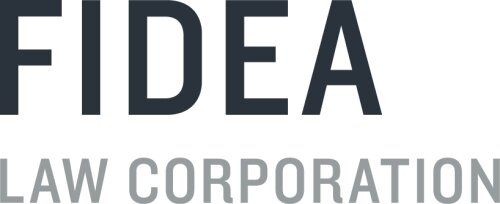Best Accounting & Auditing Lawyers in California
Share your needs with us, get contacted by law firms.
Free. Takes 2 min.
Or refine your search by selecting a city:
List of the best lawyers in California, United States
About Accounting & Auditing Law in California, United States
Accounting and auditing law in California governs the standards, practices, and legal responsibilities of professionals who prepare, review, and examine financial statements. These laws ensure the accurate reporting of financial information for individuals, businesses, and public entities. In addition, California has specific licensing and regulatory requirements for Certified Public Accountants (CPAs) and other accounting professionals. Compliance is essential to maintain public trust, avoid legal repercussions, and support the overall financial health of organizations operating within the state.
Why You May Need a Lawyer
There are many circumstances where legal advice is essential in accounting and auditing matters. Common situations include:
- Facing allegations of accounting fraud, embezzlement, or financial mismanagement
- Navigating regulatory investigations by state or federal agencies
- Responding to IRS or California Franchise Tax Board audits
- Handling disputes involving financial statements or internal controls
- Defending against professional misconduct or ethics violations
- Assisting with compliance to state and federal accounting standards
- Negotiating business sales, mergers, or acquisitions where financial due diligence is needed
- Providing guidance on tax planning and controversies
- Litigating shareholder or partner disputes involving accounting issues
- Understanding the implications of new accounting laws or regulations
A lawyer experienced in accounting and auditing law can help you navigate these situations, mitigate potential liabilities, and represent your interests effectively.
Local Laws Overview
California has its own set of laws and regulations governing accounting and auditing practices, in addition to federal guidelines like the Generally Accepted Accounting Principles (GAAP). The California Board of Accountancy (CBA) is the primary regulatory authority overseeing the licensure and conduct of CPAs and public accounting firms. Key points to be aware of include:
- Licensing requirements for accountants and auditing professionals
- Ethics rules and continuing education obligations for CPAs
- Strict enforcement of state and federal anti-fraud provisions
- Consumer protection laws addressing misleading financial statements or advertising
- Legal standards for financial disclosures by publicly traded and private companies in California
- State tax audit procedures, appeals, and dispute resolution options
- Potential civil and criminal penalties for violations of accounting and auditing rules
Complying with these local laws is crucial for professionals and businesses alike to avoid enforcement actions, financial penalties, or even loss of licensure.
Frequently Asked Questions
What entities regulate accounting and auditing in California?
The primary regulatory body is the California Board of Accountancy, which oversees the licensing and discipline of CPAs. The California Franchise Tax Board and the IRS also regulate tax-related matters, while the Securities and Exchange Commission may be involved for publicly traded companies.
Do I need to be a CPA to perform audits in California?
Yes, audits and other attestation engagements generally must be conducted by a licensed CPA or a CPA firm registered with the California Board of Accountancy.
What is the difference between an audit and a review?
An audit provides the highest level of assurance on financial statements and involves a detailed examination by CPAs. A review is less rigorous and offers limited assurance, primarily through inquiries and analytical procedures without the extensive testing of an audit.
What are common legal risks in accounting and auditing?
Common risks include misrepresentation of financial data, non-compliance with accounting standards, breach of client confidentiality, conflicts of interest, and exposure to civil or criminal liabilities.
Can I appeal a tax audit decision in California?
Yes, decisions from the California Franchise Tax Board or other state agencies can be appealed through established administrative appeal processes, and sometimes through the courts.
What happens if an accountant or auditor violates state law?
Violations can result in penalties, fines, suspension or revocation of licenses, civil lawsuits, or even criminal prosecution depending on the severity of the infraction.
What are some red flags that may trigger an audit?
Examples include significant discrepancies in reported income, large deductions relative to income, repeated late filings, and whistleblower or third-party complaints.
How are accounting and auditing ethics enforced?
California’s codes of professional conduct are enforced by the California Board of Accountancy, which investigates complaints and can impose disciplinary actions for violations.
Is continuing education required for CPAs in California?
Yes, CPAs must complete continuing education hours every renewal cycle to remain licensed and up to date with evolving laws and standards.
Can a business be held liable for an employee’s accounting misconduct?
Businesses can be held responsible for their employees’ actions if the misconduct occurred during the scope of employment, especially if the business failed to maintain proper oversight or controls.
Additional Resources
For those seeking further information or assistance, the following resources can be particularly helpful:
- California Board of Accountancy - Licensing, regulations, and consumer information regarding CPAs
- California Society of Certified Public Accountants - Professional development and advocacy
- California Franchise Tax Board - State tax compliance and audit information
- Internal Revenue Service (IRS) - Federal tax guidance and audit resources
- U.S. Securities and Exchange Commission - Regulatory guidance for public company reporting
- Local law libraries and self-help centers for access to legal texts and forms
Next Steps
If you have concerns or legal needs related to accounting or auditing in California, consider the following steps:
- Document all relevant financial records, correspondence, and notices
- Identify your specific legal issue or question
- Consult a lawyer who is experienced in California accounting and auditing law
- Ask about scope of services, experience, and fee structures before hiring
- Take advantage of free consultations or resources offered by local or state bar associations
- Stay informed about your rights and responsibilities under California’s laws and regulations
Getting proper legal advice early can prevent problems from escalating and help you make informed decisions about your situation.
Lawzana helps you find the best lawyers and law firms in California through a curated and pre-screened list of qualified legal professionals. Our platform offers rankings and detailed profiles of attorneys and law firms, allowing you to compare based on practice areas, including Accounting & Auditing, experience, and client feedback.
Each profile includes a description of the firm's areas of practice, client reviews, team members and partners, year of establishment, spoken languages, office locations, contact information, social media presence, and any published articles or resources. Most firms on our platform speak English and are experienced in both local and international legal matters.
Get a quote from top-rated law firms in California, United States — quickly, securely, and without unnecessary hassle.
Disclaimer:
The information provided on this page is for general informational purposes only and does not constitute legal advice. While we strive to ensure the accuracy and relevance of the content, legal information may change over time, and interpretations of the law can vary. You should always consult with a qualified legal professional for advice specific to your situation.
We disclaim all liability for actions taken or not taken based on the content of this page. If you believe any information is incorrect or outdated, please contact us, and we will review and update it where appropriate.
Browse accounting & auditing law firms by city in California
Refine your search by selecting a city.














